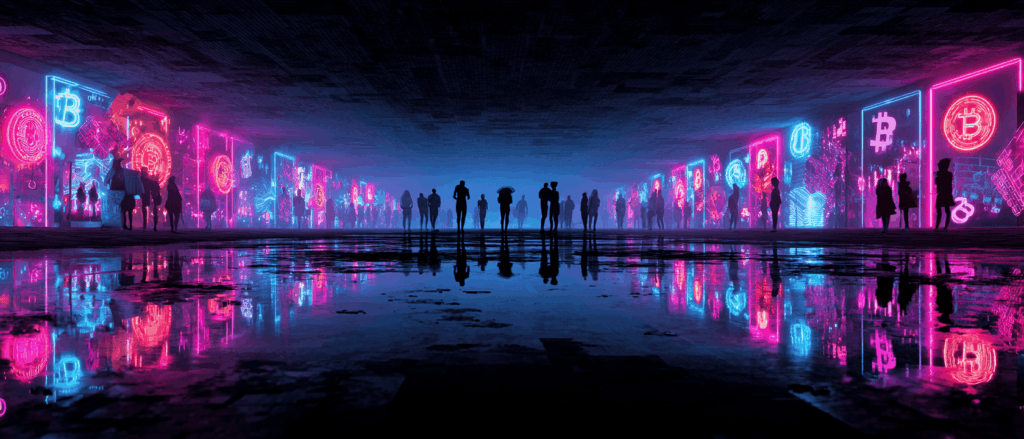The Hidden Wiki • 2026 Dark Web Links • TOR Links • Legit .onion URLs
The first time I heard about the dark web, it sounded like something out of a spy movie: a secret, shadowy part of the internet filled with criminals and covert deals. In reality, though, it’s less dramatic and more complicated than Hollywood suggests what the dark web or the hidden wiki is, really. Imagine an iceberg. The websites you use every day — Facebook, Amazon, news sites—are just the tip above the water. Beneath the surface is the deep web, which includes anything search engines can’t find, like your email inbox, bank account portal, medical records, and company intranets. Most of it is perfectly ordinary.

If you go even deeper, you reach the dark web and the hidden wiki. These are websites designed to stay hidden. You can’t find them through Google, no matter how hard you search. To access them, you need special software; the Tor browser is the most common tool.
Tor stands for The Onion Router. It protects your privacy by adding several layers of encryption to your internet connection. Your data passes through servers worldwide, and each one only knows about the servers directly before and after it. This makes it very difficult to trace online activity back to any one person.
Websites on the dark web or on the hidden wiki look different, too. Instead of ending in .com or .org, their addresses end in .onion and consist of long, random strings of characters. They’re nearly impossible to remember.
Without some guidance, finding anything on the dark web would be almost impossible. That’s why directories exist. The Hidden Wiki, for example, has served as a starting point for years. It sorts links into categories to help visitors find what they need. Some links go to privacy tools, journalist forums, or whistleblower platforms. Others lead to illegal content.
By 2026, these directories will have gotten more sophisticated. User ratings help separate legitimate sites from scams. Verification systems flag vendors with track records. Still not exactly Yelp, but the underground economy has developed its own trust mechanisms.
Not Everyone There Is a Criminal on the Hidden Wiki
Many individuals are aware that the dark web is also utilized for legitimate purposes.
For instance, journalists operating in jurisdictions with heightened surveillance may encounter monitored communications and risks related to in-person meetings. The dark web and the hidden wiki can facilitate safer, more discreet communication.
Political activists in some countries face similar issues. Organizing or sharing information about government actions may be dangerous. Anonymous communication tools can be essential for safety.
Whistleblowers also seek protection. Ordinary employees who discover fraud or safety violations may wish to alert authorities or journalists confidentially. The dark web and the hidden wiki can help them do this without risking their livelihood.
There is growing concern regarding online privacy. Due to frequent data breaches and widespread data collection, some individuals seek to browse the internet without the risk of being tracked or profiled. Next, consider one of the primary factors that contributed to the hidden wiki’s notoriety: illegal marketplaces.
The Illegal Marketplace Scene on the Hidden Wiki
The dark web is also known for illegal trade, especially the sale of banned substances and items. This reputation has overshadowed its other uses in popular culture. These marketplaces work much like any online store you’ve used. They have product listings with photos and descriptions, customer reviews about quality and shipping speed, shopping carts, and checkout systems. Vendors are rated, and there are ways to resolve disputes. The whole setup feels familiar, except for the products being sold.
Hidden Wiki Onion Link – http://wiki47qqn6tey4id7xeqb6l7uj6jueacxlqtk3adshox3zdohvo35vad.onion/
Hidden Search Engines
- OnionIndex Search Engine – OnionIndex Search Engine
- DuckDuckGo – DuckDuckGo Search Engine
- OnionLand – OnionLand Search
- tordex – tordex
- Torch – Torch
- Ahmia – Ahmia
- MetaGer – MetaGer – German Search
- haystak – haystak
Email Providers
- ProtonMail – ProtonMail
- Alt Address – Alt Address
- secMail – secMail
- TorBox – TorBox
- Elude.in – Elude.in
- adunanza OnionMail Server – adunanza OnionMail Server
- tempmail + – tempmail +
- Onion Mail – Onion Mail
- DNMX – DNMX
- Mail2Tor – Mail2Tor
- Cockmail – Cockmail
- Confidant Mail – Confidant Mail
- Underwood’s Mail – Underwood’s Mail
Forums / Social / Chat
- dread – dread
- Deutschland im Deep Web Forum – Deutschland im Deep Web Forum
- Hidden Answers – Hidden Answers
- SuprBay – SuprBay: The PirateBay Forum
- Rutor – Rutor
- Lolita City – Lolita City
- Endchan – Endchan
- Raddle – Raddle
- MadIRC – MadIRC
- The Stock Insiders – The Stock Insiders
- Facebook – Facebook
- Ableonion – Ableonion
- Adamant – Adamant Decentralized messenger
- ~/XSS.is – XSS.is – Russian Hacking Forum
- HackTown – HackTown
- NZ Darknet Forum – NZ Darknet Market Forums
- The Calyx Institute (Jabber) – The Calyx Institute (Jabber)
- AN0NYM0US’z F0RUM – AN0NYM0US’z F0RUM
Onion Hosting / Domain Services / File Sharing
- Freedom Hosting Reloaded – Freedom Hosting Reloaded
- SporeStack – SporeStack
- Ablative Hosting – Ablative Hosting
- BlackCloud – BlackCloud
- ZeroBin – ZeroBin
- Keybase – Keybase
- SecureDrop – SecureDrop
- OnionShare – OnionShare
- NJALLA – OnionShare
- Ablative.Hosting – Ablative.Hosting
- OnionLand Hosting – OnionLand Hosting
- PRIVEX – PRIVEX Hosting
- Kowloon Hosting – Kowloon Hosting
- TorPress – TorPress, Free wordpress hosting
- Kaizushi – Kaizushi PHP, Django and Rails hosting and VPS
- OnionName – OnionName
- Garlic – Onion Generator – Garlic – Onion Generator
- TorShops – TorShops
VPN
- Mullvad VPN – Mullvad VPN
- cryptostorm – cryptostorm
- AirVPN – AirVPN
Whistleblowing / News
- ProPublica – ProPublica
- The Guardian – The Guardian | SecureDrop
- AfriLEAKS – AfriLEAKS
- The Intercept – The Intercept
- The CIA – CIA
- FLASHLIGHT – FLASHLIGHT
- VOA – VOA
- New York Times – The New York Times
- BBC – BBC
- bellingcat – bellingcat
- The Tor Times – The Tor Times
- RadioFreeEurope RadioLiberty – RadioFreeEurope RadioLiberty
- Organized Crime and Corruption Reporting Project – Organized Crime and Corruption Reporting Project
- Joker.buzz – Joker.buzz
- Privacy International – Privacy International
- DW News – DW News
- BalkanLeaks – BalkanLeaks
- BuzzFeed News – BuzzFeed News
Non English Websites
- Cebulka – Cebulka – Polish Onion Forum
- DimensionX – DimensionX – Another Polish Forum
- XMundo – XMundo – Turkish Dark Web Forum
- Germania – Germania – German Dark Web Forum
- Bibliothèque – Bibliothèque – French Darknet book library
Others
- RelateList – RelateList
- Hacker Game – Hacker Game
- Tech Learning Collective – Tech Learning Collective
- cryptostorm – cryptostorm
- PsychonauticsWIKI – PsychonauticsWIKI
- AgoraDesk – AgoraDesk
- Njalla – Njalla
- LocalMonero – LocalMonero
- The CIA – The CIA
- NCIDE Task Force – NCIDE Task Force
- National Police of the Netherlands – National Police of the Netherlands
- Fake ID Generator – Fake ID Generator
- Check your anonymity online – Check your anonymity online
- Beneath VT – Beneath VT
- Go Beyond – Go Beyond
- Deep Web Radio – Deep Web Radio
- DNM Bible – DNM Bible
- xmrguide – xmrguide
- JUST ANOTHER LIBRARY – JUST ANOTHER LIBRARY
- Bible4u – Go Beyond
- Zlibrary – Zlibrary
- Comic Book Library – Comic Book Library
- The Secret Story Archive – The Secret Story Archive
- Tor Project – Tor Project
- riseup – riseup
- Debain OS – Debain OS
- Russian Books – Russian Books
- Russian Torrent / Forum – Russian Torrent / Forum
- Sonic & Tails – Sonic & Tails
- phdcasino – phdcasino
- Webpage archive – Webpage archive
- OpenPGP Keyserver – OpenPGP Keyserver
- coinpayments – coinpayments
- Tor Metrics – Tor Metrics
- DEEPDOTWEB – DEEPDOTWEB
- superkuh – superkuh
- Connect – Connect
- We Fight Censorship – We Fight Censorship
- IIT Underground – IIT Underground
- Clockwise Library – Clockwise Library
Drugs make up most of the products. Cannabis, cocaine, heroin, methamphetamine, prescription pills, and psychedelics are all available. Vendors compete on quality, price, and how well they can ship items secretly. Some promise to replace packages if they’re seized, while others offer discounts for large orders. The customer service can be better than what you find at some legal businesses. We’re up to, too, though less often than you might think. Guns, ammunition, explosives. Many of these listings turn out to be scams, though. Buyer sends cryptocurrency, seller disappears. No refunds are available when you’re trying to buy something illegal.
Counterfeit goods are common, too. You’ll find fake designer handbags and watches, forged documents like passports, driver’s licenses, and diplomas, and counterfeit money in different amounts. The quality ranges from obviously fake to very convincing.
Stolen data represents another major category. Credit card numbers are sold by the thousands. Bank account credentials. Login information for streaming services, retail sites, and corporate networks. Personal identity packages containing everything needed to impersonate someone.

By 2026, these marketplaces have gone through many changes. When law enforcement shuts one down, another appears within weeks. Operators learn from past mistakes, making security tighter and vetting stricter. The cycle keeps going.
Cryptocurrency Makes It All Work on the Hidden Wiki Links
None of this illegal trade would work without cryptocurrency. It’s what makes the whole system possible.
Bitcoin initiated this method of value transfer by enabling transactions independent of banks or payment processors. There are no credit card details to trace or wire transfers to monitor—only wallet addresses and public blockchain transaction records exist.
However, Bitcoin’s transparency posed challenges. Every transaction is permanently recorded. Investigators developed techniques to trace the movement of funds and link wallets to individual identities using various methods. Thus, the level of anonymity was less comprehensive than initially anticipated.
Privacy coins were created to fix this weakness. Monero, for example, is a cryptocurrency (a digital currency secured with encryption) designed for more anonymity. It hides transaction details by default, so senders, recipients, and amounts remain secret. This makes tracing funds much harder. Mixing services add another layer of confusion. You send in your coins, they get mixed with coins from other users, and you receive different coins back. This breaks the link between what you put in and what you get out, making it very hard for investigators to follow the money.
For vendors, cryptocurrency enables revenue generation outside conventional financial systems. There are no bank accounts to freeze and no mandated tax reporting. Funds move across international borders unobstructed by customs or currency regulations. Converting cryptocurrency to traditional currencies remains complex, yet the digital assets themselves are transferred efficiently.
Identity Theft Operations
Your personal information is probably already on the dark web and the hidden wiki. Unfortunately, data breaches are now so common that most people’s details have been exposed more than once. Hidden Wiki markets provide the venue. Massive databases of customer records get carved up and sold in various formats. Full identity packages cost more than individual pieces of information.
What do these packages include? Names and addresses, of course, along with dates of birth, Social Security numbers, phone numbers, email addresses, work history, and family member names. This is everything an identity thief needs to open accounts, file fake tax returns, or take out loans in someone else’s name. All records command premium prices. Health insurance information enables billing fraud. Prescription histories help people obtain controlled substances. The combination of financial and medical data creates opportunities for sophisticated scams.
Credit card numbers move. Credit card numbers are sold in large quantities. If a hacker breaks into a retail payment system, they might steal millions of card numbers at once. These are sold in groups, with prices depending on the card type, available balance, and how recently the data was stolen. Newer cards are more valuable because they haven’t been canceled yet. of things, often don’t realize anything has happened until months later. The charge appears on a statement. A debt collector calls about an account you never opened. A loan application gets denied because your credit score tanked. Cleaning up the mess takes forever, and the frustration never fully goes away.
Hacking Services For Hire
Besides buying stolen data, people can also hire hackers directly. If you want someone’s email password, want to take down a competitor’s website, or need to install surveillance software on a target’s phone, there are services for all of these things.

Distributed denial-of-service attacks, where a target website is overwhelmed with traffic until it goes offline, are rented by the hour, based on attack strength and duration. Some services offer subscriptions for ongoing harassment campaigns. Malware kits are sold to people without technical skills. Ransomware lets anyone lock victims’ files and demand payment for the key. Keyloggers record every keystroke, including passwords and credit card numbers. Banking trojans can intercept financial transactions and steal money.
Custom hacking Jobs get quoted individually. Corporate espionage to steal trade secrets. Accessing a cheating spouse’s messages. Sabotaging a business rival’s operations. Clients explain what they want, hackers name their price, and if both sides agree, the work proceeds.
Many of these supposed elites, however, are actually scammers. They take payment up front and then disappear. Victims can’t report these failed illegal purchases to consumer protection agencies. It has become a specialty for some crews. They target exchanges holding customer funds, individual wallets with large balances, and the smart contracts that power decentralized finance. Billions have disappeared over the years. Most of it will never be recovered.
The Exploitation Problem
Some content on the dark web and the hidden wiki is so disturbing that it’s hard to even write about. But ignoring it doesn’t help, so it’s important to address it.
Child abuse imagery circulates in hidden communities. Predators share this content with each other, trading collections and discussing their crimes. The anonymity provided by Hidden Wiki tools makes them feel protected from consequences.
These networks are very security-conscious. New members must be vetted before joining. The most disturbing content is kept in inner circles that require proof of criminal activity to access. By dividing information, they ensure no single person knows too much about the entire network.
The victims are real children whose abuse gets documented and distributed. Their suffering becomes entertainment for monsters. The psychological damage extends beyond the original abuse as they grow up knowing this material exists forever, circulating among strangers.
Law enforcement makes these cases a top priority. Specialized teams work day and night. International cooperation has improved a lot, and the methods for breaking into these networks have become more advanced. Arrests now happen regularly.
But the problem continues. Taking down one network often reveals links to others. Every arrested predator had contacts who are still free. The work goes on because children need protection, and these criminals must face consequences. The list of illegal activities on the hidden wiki keeps getting longer. All kinds of fraud schemes find an audience there. Tutorials explain how to run romance scams, investment cons, and phishing attacks. Criminals share tips and learn from each other.
Services claiming to offer murder Services for hire show up from time to time. Most security experts believe these are scams meant to steal cryptocurrency from desperate people. Still, law enforcement takes them seriously. Both the supposed providers and those trying to hire them can face charges. In dark web forums. Terrorist organizations use these spaces to communicate and recruit. Propaganda gets distributed. Fundraising happens through cryptocurrency donations. Manifestos get published before attacks.
Stolen physical goods, like jewelry and designer items, are also sold through the dark web. Thieves connect with buyers without meeting face to face. Shipping is complicated, but the anonymity makes it worthwhile for many.
Corporate secrets and insider information are traded by people looking to profit illegally. This includes stock tips based on private information, trade secrets stolen from competitors, and customer databases taken from company systems. The espionage economy never stops.
Why Law Enforcement Struggles
Investigating crimes on the dark web and the hidden wiki is especially difficult. There are technical challenges: Tor hides internet traffic, cryptocurrency makes financial trails hard to follow, and encryption protects messages. Gathering evidence takes special skills and tools that many agencies don’t have.
Jurisdiction is another big problem. A marketplace might have servers in one country, operators in another, vendors in many more, and buyers all over the world. It’s hard to know who has the right to investigate or how to work across so many legal systems. ve work still matters. Undercover operations have produced major arrests. Criminals make mistakes eventually. They reuse usernames across platforms. They brag about their activities. They trust the wrong people. Patient investigators wait for those openings.
Technical abilities have improved over time. Blockchain analysis can track cryptocurrency even with mixing and privacy coins. Traffic analysis can sometimes link anonymous sessions to real people. Malware placed on dark web and the hidden wiki servers has also collected visitor information.
International cooperation has gotten better, but it’s still not perfect. Countries have different priorities, and political tensions can make sharing information hard. Extradition agreements don’t cover every case. Building cases that work in several legal systems takes a lot of work.
Still, there have been successes. Major marketplace operators have been sent to prison. Major child abuse distributors have been caught. Drug trafficking networks have been broken up. Some criminals now realize that anonymity has limits, but it’s unclear if this deters enough of them.
Staying Safe in 2026
You don’t need to visit the dark web to be affected by it. The threats that come from there can reach anyone. That’s why it’s smart to take basic precautions more than people realize. Use different ones for every account. Make them long and random. A password manager handles the complexity so you don’t have to remember dozens of unique strings. When one site gets breached, your other accounts stay protected.
Two-factor authentication provides an important extra layer of protection. Even if someone gets your password, they still need a second code to log in. Authentication apps are safer than text messages, since phone numbers can be stolen through SIM-swapping. Watch your financial accounts closely. Check your statements often for charges you don’t recognize. Set up alerts for large transactions, and consider freezing your credit at the major bureaus to stop new accounts from being opened in your name. skeptical of unexpected contact. Phishing emails look increasingly convincing. Phone scammers spoof legitimate numbers. Knowing your address or account details doesn’t make someone trustworthy. Verify through official channels before providing information or taking action.
If you research the Hidden Wiki for work or curiosity, take precautions seriously. Use a dedicated device with no personal information. Add a VPN layer on top of Tor. Never download files without understanding exactly what they are. Don’t click random links. And obviously, don’t buy anything or engage with illegal content.
Privacy Without the Dark Web Hidden Wiki
You don’t have to go to risky online places to improve your privacy. There are plenty of tools that work on the regular internet.
DuckDuckGo has grown substantially as people look for search engines that don’t track them. Your queries stay private. No advertising profile gets built around your interests. The results come without the personalization that creates filter bubbles.
Your choice of browser matters, too. Firefox and Brave have better privacy settings than Chrome. Extensions can block trackers and stop websites from identifying your device. Private browsing modes keep your local history from being saved.
VPNs encrypt your internet traffic and hide your real IP address from the websites you visit. They aren’t perfect, since the VPN provider can still see your activity, but they offer good protection, especially on public WiFi.Pick providers with strong privacy policies and independent audits.
Encrypted messaging apps keep your conversations private. Signal is now the top choice for secure communication. WhatsApp uses similar encryption, but Meta still gets the metadata. Regular text messages offer almost no protection. Email encryption is still harder to use than it should be, but it’s getting better. Services like ProtonMail have built-in encryption by default. For regular email providers, there are tools to add protection, but both people need to use them.
What Comes Next
The dark web will keep changing because the basic issues remain the same. People want privacy, criminals want to stay hidden, and law enforcement wants access. These competing needs mean everyone keeps adapting. Technology keeps advancing in different ways. New privacy tools appear, but so do better surveillance methods. Encryption gets stronger, but ways to get around it also increase. No side has a lasting advantage.
Public understanding has grown, which helps. More people grasp what the dark web is and roughly how it works. Schools teach internet safety with more nuance. Parents have better-informed conversations with kids about online risks. The mystery has faded, even if the dangers remain. Policy debates are still ongoing. Governments want ways to access encrypted data, while privacy advocates warn that weaker security puts everyone at risk. The struggle between safety and freedom continues in legislatures and courts worldwide. There’s no agreement yet, and none is likely in the near future.

The rest of 2026 will bring more of the same. Marketplaces will rise and fall. Criminals will adapt to new pressures. Investigators will find new techniques. The cycle continues because the incentives driving it remain powerful on all sides.
Conclusion
The dark web shows what people do when they believe no one is watching. Some of these actions are noble. Journalists protect their sources, activists organize against oppression, and whistleblowers reveal wrongdoing. Privacy is important, and the tools that provide it have real value.
Children get exploited. Drugs fuel addiction. Fraud destroys lives. The same anonymity that protects the vulnerable also shields predators, and Learning about the dark web doesn’t mean you support what happens there. It means understanding how the internet really works, why your personal data matters, and where it could end up. It also means seeing both the good and bad sides of anonymity.f The choices we make about privacy and security shape the digital world we live in. To make good choices, we need to understand what’s at risk. That understanding comes from facing uncomfortable truths instead of ignoring them.
Keep learning about how these systems work. Be careful about protecting yourself. Remember, the internet is much bigger than what you see in your browser. This knowledge helps you, even if you never use Tor or visit a .onion site.